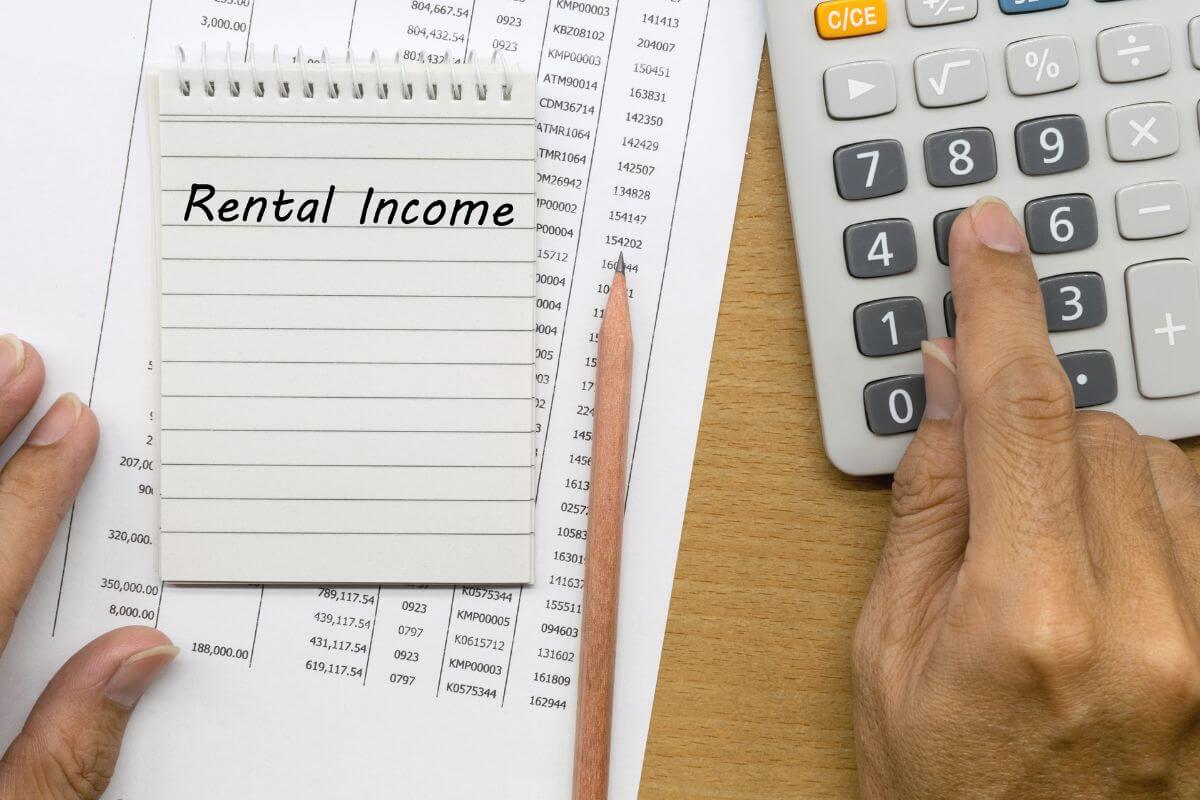Renting property in Canada offers a revenue stream, but landlords often ask: is rental income taxable? Yes, it is, and understanding Canadian tax rules is vital.
This guide covers how Canadian rental income is taxed, allowable CRA deductions, and reporting duties.
Understanding Canadian Rental Income and Taxes
Rental income in Canada includes all payments for property use, mainly monthly rent. Kept security deposits (due to damages or unpaid rent, per provincial laws) become taxable income in the year you determine they won’t be returned.
This applies whether renting a room, vacation home, or multiple units, regardless of rental frequency.
How Is Rental Income Taxed in Canada?

Net rental income (gross rents minus expenses) is added to other income (e.g., employment earnings) and taxed at your marginal tax rate, determined by total taxable income and province/territory (federal and provincial/territorial taxes apply).
Report rental income/expenses on Form T776, Statement of Real Estate Rentals, filed with your T1 General. Co-owners file separate T776s for their share.
Prepaid rent is income in the year received, regardless of the period covered.
Rental Income Tax Rates
Your net rental income is taxed at your marginal rate. Federal and provincial/territorial tax brackets are progressive. If rental income pushes you to a higher bracket, only that portion is taxed at the higher rate. Tax software or a tax accountant can help estimate liability and installment needs.
Deductions for Canadian Rental Property Owners
Canadian tax law allows deducting many expenses incurred to earn rental income, reducing taxable amounts. Accurate records are crucial.
Common CRA-approved deductions include:
- Mortgage Interest: The interest portion (not principal) of mortgage payments.
- Property Taxes: Municipal taxes for the rental period.
- Insurance: Premiums for landlord, fire, or flood insurance.
- Repairs and Maintenance: Ordinary costs to keep property operational (e.g., painting, fixing leaks). Major improvements are capital expenses.
- Utilities: Landlord-paid utilities (water, gas, electricity).
- Property Management Fees: Fees to managing agents.
- Travel Expenses: Reasonable, logged travel for property management (rent collection, repairs), meeting CRA conditions.
- Advertising: Costs to find tenants.
- Legal/Professional Fees: For lease drafting or rental-related tax preparation.
- Salaries/Wages: For employees like superintendents (not your own labour).
Other Expenses: Condo fees, landscaping, snow removal, rental bank account charges.
Capital Cost Allowance (CCA)

CCA is a key deduction. You can’t deduct the full cost of a rental building (not land) or major improvements upfront. Instead, deduct a portion of their cost annually over their useful life via CCA.
Properties are classed with specific CCA rates (e.g., Class 1 for most buildings, usually 4%). Land isn’t depreciable. Furniture/appliances have their own CCA classes. Correct CCA calculation is important .
A repair (current expense, fully deductible) differs from an improvement (capital expense, depreciated via CCA).
Special Rules for Vacation and Short-Term Rentals
For properties with personal use (e.g., vacation homes), allocate expenses between rental and personal use; only deduct for the rental period.
Short-term rentals (e.g., Airbnb) may have GST/HST implications if revenues exceed $30,000 over four consecutive quarters. New CRA rules from January 1, 2024, can deny expense deductions for non-compliant short-term rentals (those violating provincial/municipal rules or in prohibited areas).
Rental Income and Losses
Report rental activity on Form T776, even at a loss. Rental losses can often offset other income.
However, the CRA requires a reasonable expectation of profit. Consistent losses, especially from below-market rent (e.g., to family), may lead to loss disallowance.
Self-Employment Considerations for Rental Income
Net rental income is generally not subject to Canada Pension Plan (CPP) contributions or Employment Insurance (EI) premiums, as it’s usually investment income, not business income.
If you provide substantial services beyond basic rental (e.g., cleaning, meals, like a hotel), it might be business income, subject to CPP. Consult CRA guidelines or a tax professional if unsure.
Record Keeping for Canadian Rentals
Meticulous records are essential. The CRA requires detailed records of all rental income and expenses: lease agreements, rent payment records, security deposit documentation (per provincial rules), receipts, invoices, bank statements for all expenses.
Good records support accurate tax returns, deductions, and CRA reviews. Track your property’s adjusted cost base (ACB) – purchase documents, capital improvement receipts – for when you sell.
Use accounting software or spreadsheets. Keep records for six years from the end of the relevant tax year. Get CRA permission to destroy records earlier.
Reporting Rental Income on Your Canadian Tax Return
Report total rental income and expenses on Form T776 with your T1 General. Detail each property: address, income/expense breakdown, CCA claimed.
Multiple properties usually need separate T776s (unless units in one building). Net rental income/loss from T776s goes to your T1, affecting total income and tax.
Substantial net rental income not subject to source withholding may require tax instalments to avoid penalties.
Tax Implications of Selling a Canadian Rental Property
Selling a rental property involves capital gains and potential CCA recapture.
A capital gain occurs if you sell for more than your ACB (original cost + acquisition/improvement costs – government assistance). In Canada, 50% of a capital gain is taxable, added to your income.
CCA claims may be recaptured if the building sells for more than its undepreciated capital cost (UCC: original cost – total CCA). Recaptured CCA is fully taxable income. Selling for less than UCC might result in a fully deductible terminal loss.
Distinguish land (capital gains/losses only) from the building (depreciable, subject to CCA rules).
If the property was your principal residence, special rules and the principal residence exemption might reduce/eliminate capital gains for those years. However, CCA claimed during rental periods isn’t sheltered and may be recaptured.
Final Thoughts for Canadian Landlords
Knowing rental income is taxable is the start. Navigating deductions, CCA, and reporting is key for compliance and tax optimization. Complexities like changes in use, short-term rentals, and sales make consulting a Canadian tax specialist advisable.
Keep thorough records, stay updated on CRA rules, and file accurately. This makes for effective financial management and meeting your landlord obligations. For questions and assistance regarding tax from rental income, contact Pivot Advantage Accounting and Advisory Inc. for assistance.


